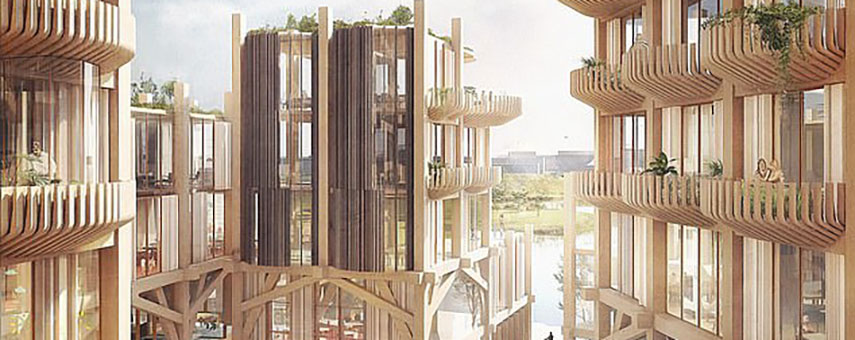Toronto-based “Google smart city” asks questions of IoT security

With self-driving taxis and snow-melting pavements, Toronto’s waterfront was set to be the most technologically advanced smart city in the world. Now, the project launched by Google sister company Sidewalk Labs looks to be in jeopardy over security concerns.
The original vision for Quayside describes a utopian neighbourhood complete with sensors built into the infrastructure of the city. The plans included benches that signalled when they needed repair and waste bins that identified when they needed emptying. The 12-acre area is also set to encourage the use of electric vehicles and will house an on-site power generation station using renewable energy.
There is significant objection to the project, however. Residents of Toronto have started a #BlockSidewalk movement in reaction and last month, The Canadian Civil Liberties Association sued the Canadian government and the local and provincial governments. There are substantial concerns about data of citizens living in a potential smart city, and privacy scandals at Google and Facebook have only intensified the debate.
Plans are months behind schedule, as any such proposal requires the approval of both Waterfront Toronto and several government bodies.
What’s the tech behind smart cities?
Around two-thirds of the world’s population could live in urban areas by 2050. As the world’s population grows, cities will develop at a similar pace, with IoT playing a huge role in transforming spaces into cyber-metropolises.
IoT sensors and beacons are essential in keeping a smart city ticking. From air quality management to point-to-point transit systems, a smart city is packed with IoT technology: as the dependence on sensors grows, bandwidth efficiency will have to keep up, though there are serious privacy and security issues that come with this.
Huge amounts of data will be collected by a smart city. Open data portals are one option, and smart infrastructure will mean that a city can use data collected to develop the city’s efficiency. Citizens will have little choice in subscribing to data collection services, which is a concern for many, and mass surveillance is inherent in environments where data is constantly being collected. Many people are uncomfortable living in such scrutiny, though privacy is perhaps secondary to security as the biggest smart city concern.
IoT can be exploited. Smart cities will rely on machine-to-machine communication, potentially giving cybercriminals the keys to the city if security isn’t strong enough. It’s been warned that smart city technology can be taken advantage of to supervillain-style levels: hackers could create gridlock by accessing traffic lights or evacuate buildings that they want to clear.
What benefits does a smart city have?
Utter the words “smart city” and there’s a strong chance people picture futuristic new skylines springing up in the spaces between existing towns. This isn’t always the case, though. Amsterdam, Dubai and New York have all implemented smart city technologies in one way or another, while closer to home, the likes of Milton Keynes and Southampton have launched smart city projects too.
Smart city projects, after all, don’t just improve infrastructure, they drive social transformation.
In Barcelona, sensor technology has been implemented in the bus network of the city. Combined with the integration of smart traffic lights, the Catalan capital has benefitted from a revamp in bus routes, thanks to big data analysis from the technology. As a result, Barcelona’s buses now run on routes designed to optimise the number of green lights. Additionally, when an emergency is reported in the city, the route of the emergency vehicle is recognised by the traffic light system, setting lights to green to ensure the vehicle gets to its destination as quickly as possible.
Using data to run services more efficiently will help to improve environmental sustainability in our biggest cities. Data collected from sensors can capture air quality, sound levels, temperature and water levels, to serve as what’s been described as “fitness trackers” for cities; Chicago, for example, is now implementing an “Array of Things”, in which boxes with sensors and cameras are keeping track of vital signs and feeding back ways for the city to become more resourceful.
Of course, one of the biggest benefits of smart cities is that quality of life is extremely good for citizens. Smart cities are not just more environmentally friendly, they can map residents’ health and keep citizens safer with surveillance and quicker vehicle deployment. Smart city projects, after all, don’t just improve infrastructure, they drive social transformation.
A political issue
The ability of smart cities to radically change people’s lives makes them more than just a technological topic. Governments are responsible for urban development and smart cities are no different: the smart city in Toronto is intricately tied to Justin Trudeau’s Canadian government since the president was on hand 18 months ago to help announce the project.
Though the future of the Toronto Quayside smart city is uncertain, the future for similar projects is inevitable. IoT will play a vital role in how we develop cities in the coming years, and though no doubt the reservations about security will rumble on, it seems certain that the future will bring about more technological towns.
